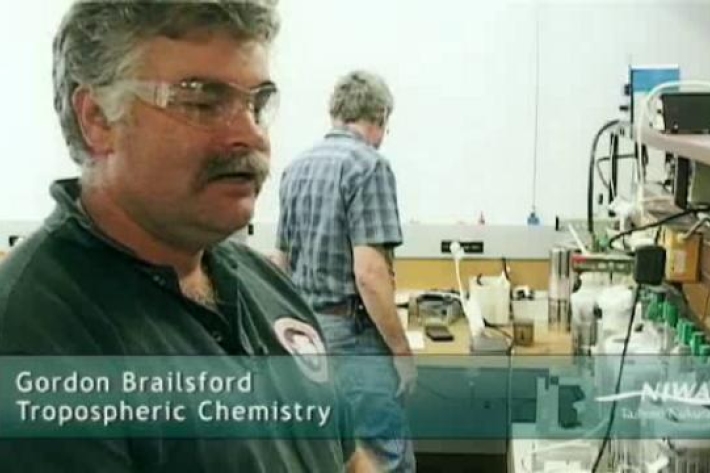-

Trace gas datasets - naming conventions and data formats
FacilityTrace gas datasets - naming conventions and data formats -

Summer Series 1: Ready to rumble - the anatomy of a summer thunderstorm
News article03 January 2013 -

NIWA remains committed to its atmospheric science
News article31 July 2012NIWA will continue, as planned, to support Lauder as a key facility in our atmospheric research portfolio. -

Scientists discover abrupt increase in CO2 uptake by the land biosphere
News article12 July 2012Scientists have discovered an abrupt increase in the uptake of atmospheric carbon dioxide by the land biosphere since1988. Without this natural increase in uptake, the amount of carbon dioxide in the atmosphere would probably have increased even more rapidly over the last two decades. -

Surface Ocean Aerosol Production (SOAP)
Research ProjectHow do marine micro-organisms influence the earth's atmosphere and climate? -

What are Global Warming Potential™ and CO2 equivalent emissions™?
The Global Warming Potential (GWP) of a greenhouse gas is its ability to trap extra heat in the atmosphere over time relative to carbon dioxide (CO2). This is most often calculated over 100 years, and is known as the 100 year GWP. -

Chemistry-climate modelling
Research ProjectThis research project focusses on modelling atmospheric chemistry and climate from the surface to the top of the stratosphere, using sophisticated chemistry-climate models. -

Southern Ocean Gas Exchange
Understanding the role of the Southern Ocean in absorbing carbon-dioxide from the atmosphere. -

International Greenhouse gas experts meet in Wellington
News article21 October 2011



